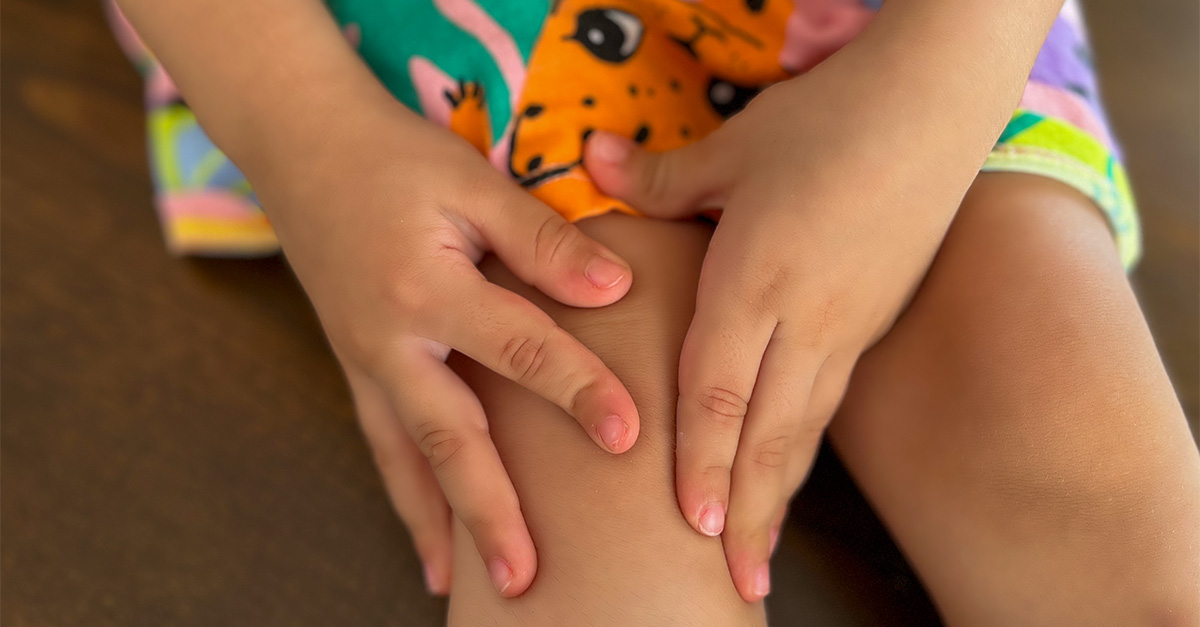Arthritis is common in older individuals, but most people are surprised to learn that it can also affect children and teens. Like arthritis that develops in adults, juvenile arthritis is an umbrella term for rheumatic and inflammatory conditions. There are several types, each of which can have different symptoms.
Here, we take a closer look at the signs of juvenile arthritis, as well as possible causes and treatment options.
Juvenile Arthritis Symptoms
Many types of juvenile arthritis affect the joints. Children may experience swelling, tenderness, stiffness, and soreness, for example, in their knees, ankles, hips, and/or hands and feet. These symptoms may make it difficult for children to complete daily activities and may worsen after sleeping or being in one position for an extended time.
Certain types of arthritis can affect other areas of the body, however. Some children may have few to no joint issues, and their symptoms may instead affect their skin and internal organs. In psoriatic arthritis, for example, scaly red patches can form on the child’s skin. Another type, lupus, commonly produces a butterfly-shaped rash across the face. Depending on what type of arthritis they have, children may also experience eye irritation, digestive issues, and fatigue, among other symptoms.
Types of Juvenile Arthritis
Juvenile arthritis is diagnosed based on a child’s symptoms, how many joints are affected, and whether there are certain markers in their blood. The most common types of juvenile arthritis include:
- Oligoarticular: This condition affects just a few joints, such as the knee or ankle. It accounts for about half of all cases and may only require minor treatment.
- Polyarticular: This type affects five or more joints and represents about 30% of cases.
- Psoriatic: Children with psoriatic arthritis may also have psoriasis or a family member who has psoriasis. This skin condition causes patches of skin to become inflamed.
- Systemic: Approximately 20% of cases are systemic, meaning children also experience inflammation in their internal organs. A specialist known as a rheumatologist can help provide the right treatment for this condition.
What Causes Juvenile Arthritis?
Researchers have yet to determine the exact causes of juvenile arthritis. Currently, it’s believed that a combination of genetic and environmental factors may contribute to the condition. In other words, children with specific genes who are then exposed to certain viruses, bacteria, or other environmental triggers may develop juvenile arthritis.
Does Juvenile Arthritis Go Away?
While there is no cure for juvenile arthritis, life expectancy isn’t reduced in the majority of cases, and most children can continue to enjoy an active lifestyle after their diagnosis, especially with early detection and dedicated treatment. Treatment goals typically include reducing inflammation, alleviating symptoms, preserving the joints, and minimizing the long-term impact of the disease.
There are many treatments available for different types of juvenile arthritis, including physical therapy and medication. Some medicines may be used to control inflammation, while others may suppress the immune system to prevent it from attacking joints. Lifestyle remedies such as using cold or warm compresses, doing low-impact exercise, and eating a nutritious diet can also help.
With prompt diagnosis and treatment, some forms of juvenile arthritis can go into remission. This means symptoms will subside and there will be minimal disease activity, if any.
Schedule an Appointment With YourTown Health’s Pediatric Care Providers
Watching your child go through a medical issue can be difficult, but they’ll be in the most capable hands with YourTown Health. Our pediatric care providers can help get to the bottom of any ailments your child may be facing so they can start receiving the best available treatment, and thrive in total wellness. Contact us online to schedule an appointment, or call us at 770-463-4644.

